New study suggests brontosaurus may actually be a real dinosaur
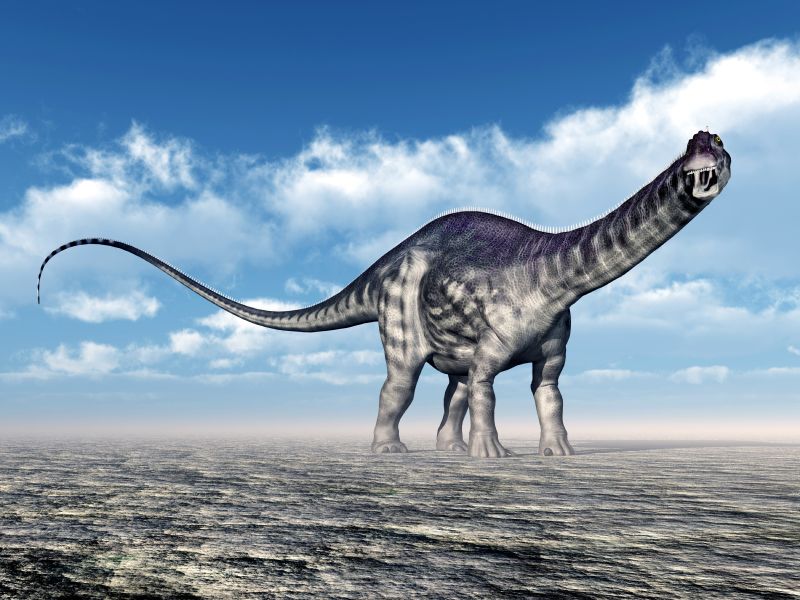

If you've ever taken a paleontology class, you've heard that the brontosaurus is not a real type of dinosaur, despite its popularity in film. However, a new paper published in the journal PeerJ suggests the brontosaurus may have existed after all.
Charles Marsh, who discovered the brontosaurus in 1879, didn't provide enough distinction between the brontosaurus and the other dinosaur he discovered, the Apatosaurus, The Washington Post explains. The Apatosaurus skeleton he found wasn't complete, and later findings resembled both of Marsh's finds, so the dinosaurs were combined into one genus.
The new study claims that the Apatosaurus excelsus and Apatosaurus ajax have enough differences that they should be separate genera, which would give credence to Marsh's original Brontosaurus proposal.
Subscribe to The Week
Escape your echo chamber. Get the facts behind the news, plus analysis from multiple perspectives.

Sign up for The Week's Free Newsletters
From our morning news briefing to a weekly Good News Newsletter, get the best of The Week delivered directly to your inbox.
From our morning news briefing to a weekly Good News Newsletter, get the best of The Week delivered directly to your inbox.
"The differences we found between Brontosaurus and Apatosaurus were at least as numerous as the ones between other closely related genera, and much more than what you normally find between species," Roger Benson of the University of Oxford, co-author of the study, said in a statement.
The study could hold larger implications for scientific classifications, too. The findings could lead to more regulation about how different genera are defined.
Sign up for Today's Best Articles in your inbox
A free daily email with the biggest news stories of the day – and the best features from TheWeek.com
Meghan DeMaria is a staff writer at TheWeek.com. She has previously worked for USA Today and Marie Claire.
-
 Sundance Film Festival looks for a new home as movie buffs dial in
Sundance Film Festival looks for a new home as movie buffs dial inIn the Spotlight The festival will be moving to Salt Lake City, Boulder, Colorado, or Cincinnati
By Justin Klawans, The Week US Published
-
 The Week contest: Trillionaire tome
The Week contest: Trillionaire tomePuzzles and Quizzes
By The Week US Published
-
 'On arrival, workers faced a system of racial segregation'
'On arrival, workers faced a system of racial segregation'Instant Opinion Opinion, comment and editorials of the day
By Justin Klawans, The Week US Published
-
 Europe records big leap in renewable energy
Europe records big leap in renewable energySpeed Read Solar power overtook coal for the first time
By Peter Weber, The Week US Published
-
 Blue Origin conducts 1st test flight of massive rocket
Blue Origin conducts 1st test flight of massive rocketSpeed Read The Jeff Bezos-founded space company conducted a mostly successful test flight of its 320-foot-tall New Glenn rocket
By Peter Weber, The Week US Published
-
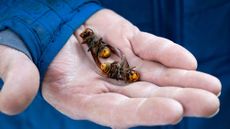 US won its war on 'murder hornets,' officials say
US won its war on 'murder hornets,' officials saySpeed Read The announcement comes five years after the hornets were first spotted in the US
By Peter Weber, The Week US Published
-
 Dark energy data suggest Einstein was right
Dark energy data suggest Einstein was rightSpeed Read Albert Einstein's 1915 theory of general relativity has been proven correct, according to data collected by the Dark Energy Spectroscopic Instrument
By Peter Weber, The Week US Published
-
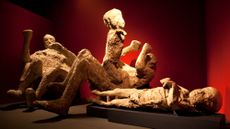 New DNA tests of Pompeii dead upend popular stories
New DNA tests of Pompeii dead upend popular storiesSpeed Read An analysis of skeletal remains reveals that some Mount Vesuvius victims have been wrongly identified
By Peter Weber, The Week US Published
-
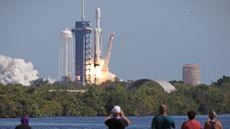 NASA's Europa Clipper blasts off, seeking an ocean
NASA's Europa Clipper blasts off, seeking an oceanSpeed Read The ship is headed toward Jupiter on a yearslong journey
By Peter Weber, The Week US Published
-
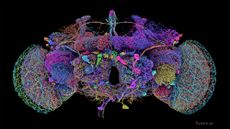 Detailed map of fly's brain holds clues to human mind
Detailed map of fly's brain holds clues to human mindSpeed Read This remarkable fruit fly brain analysis will aid in future human brain research
By Peter Weber, The Week US Published
-
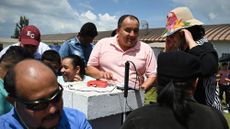 Blind people will listen to next week's total eclipse
Blind people will listen to next week's total eclipseSpeed Read While they can't see the event, they can hear it with a device that translates the sky's brightness into music
By Peter Weber, The Week US Published